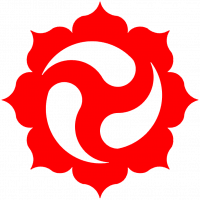"The Death of Expertise"
- steamboat28
-
 Topic Author
Topic Author
- Offline
- User
-

Inactive
- Si vis pacem, para bellum.
I am (or at least think I am) an expert. Not on everything, but in a particular area of human knowledge, specifically social science and public policy. When I say something on those subjects, I expect that my opinion holds more weight than that of most other people.
I never thought those were particularly controversial statements. As it turns out, they’re plenty controversial. Today, any assertion of expertise produces an explosion of anger from certain quarters of the American public, who immediately complain that such claims are nothing more than fallacious “appeals to authority,” sure signs of dreadful “elitism,” and an obvious effort to use credentials to stifle the dialogue required by a “real” democracy.
A.Div
IP | Apprentice | Seminary | Degree
AMA | Vlog | Meditation
Please Log in to join the conversation.
Please Log in to join the conversation.
Please Log in to join the conversation.
Please Log in to join the conversation.
Please Log in to join the conversation.
Like how I'm reading in Buddhism at the moment in the that "what something appears to be may be either accurate or inaccurate, depending on whether or not it can be corroborated by further valid cognition of what things conventionally are. Similarly, how something appears to exist may be either pure or impure, depending on whether or not the way that something appears to exist corresponds to the way in which it actually exists". Which I thought was an interesting way to approach it, and to understand it and better learn.
I guess the topic approaches concepts of democracy, does every opinion count or should decisions be made by defined sets of people who have sufficient accurate (& pure lol) understanding... and then ensure transparency and accountability extends outside those groups to create some system of support. the problem might be that people don't know what they don't know so formulate opinions and associate them into their worldview which they then go onto use to define themselves! Which sort of risks bringing emotion into things sometimes.
Please Log in to join the conversation.
1.) the assumption that there's a 'right' answer which the expert can provide. some questions don't have a 'right' answer.
2.) the assumption that if there is a right answer, the expert is going to be loyal to the truth and his/her answer not impacted by other concerns (this is why American environmental policies based on 'make the experts figure it out' back in the 1970s didn't work, the experts weren't immune to other influences)
3.) the assumption that a clear line can be drawn between experts and non-experts
4.) the assumption that experts are in agreement with each other, which is the case on some major topics like global warming, but not the case on many other topics.
5.) the assumption that the expert can communicate his/ her words in a way which can be understood, otherwise the expert opinion can be misunderstood and cause problems.
6.) the assumption that an expert is necessary to answer the question or perform the task. Oftentimes it is valuable to assemble facts for oneself or learn a new skill for oneself. Obviously there are many cases in which it's a dangerous idea not to draw on available specialists, but we're also quick to let others do our thinking for us because it's easier that way.
Please Log in to join the conversation.
- steamboat28
-
 Topic Author
Topic Author
- Offline
- User
-

Inactive
- Si vis pacem, para bellum.
Adder wrote: I guess the topic approaches concepts of democracy, does every opinion count or should decisions be made by defined sets of people who have sufficient accurate (& pure lol) understanding...
"No. It's not your opinion. You're just wrong."
A.Div
IP | Apprentice | Seminary | Degree
AMA | Vlog | Meditation
Please Log in to join the conversation.
- steamboat28
-
 Topic Author
Topic Author
- Offline
- User
-

Inactive
- Si vis pacem, para bellum.
Archaic Smile wrote: That said, I see a few assumptions...
Your assumptions also make assumptions.
- The assumption that some questions don't have an answer.
- The assumption that people are inherently biased, regardless of the facts or their duty to report them.
- The assumption that there are times expertise isn't clear.
- The assumption that agreement is necessary for expertise to play a factor in discussion.
- The assumption that experts are overly technical instead of their audience being less capable/more biased.
- The assumption that experts are unnecessary.
A.Div
IP | Apprentice | Seminary | Degree
AMA | Vlog | Meditation
Please Log in to join the conversation.
steamboat28 wrote:
Archaic Smile wrote: That said, I see a few assumptions...
Your assumptions also make assumptions.
- The assumption that some questions don't have an answer.
- The assumption that people are inherently biased, regardless of the facts or their duty to report them.
- The assumption that there are times expertise isn't clear.
- The assumption that agreement is necessary for expertise to play a factor in discussion.
- The assumption that experts are overly technical instead of their audience being less capable/more biased.
- The assumption that experts are unnecessary.
You essentially just did a "nuh uh, infinity plus 1!", kind of humorous in a way. :lol:
Please Log in to join the conversation.
